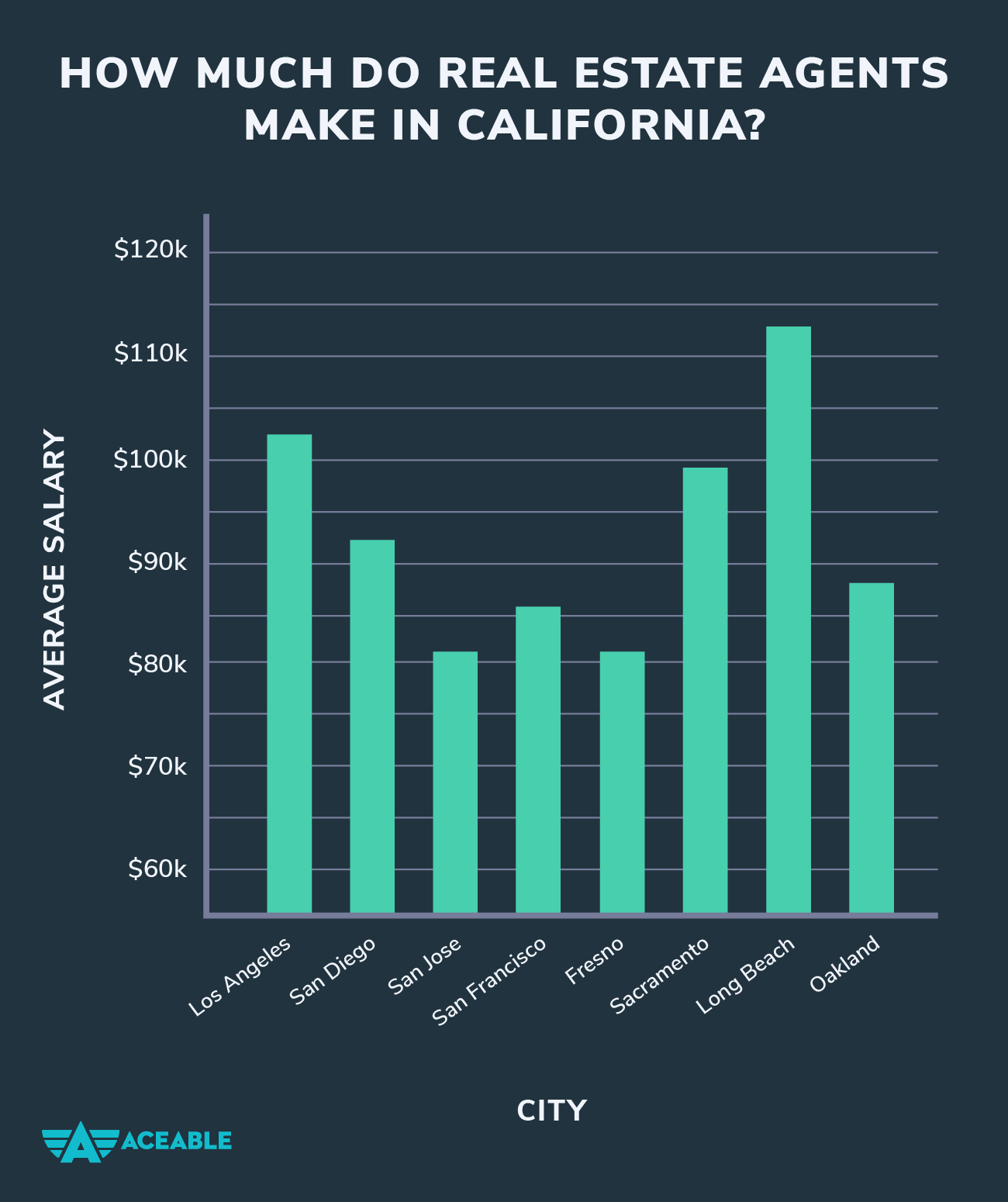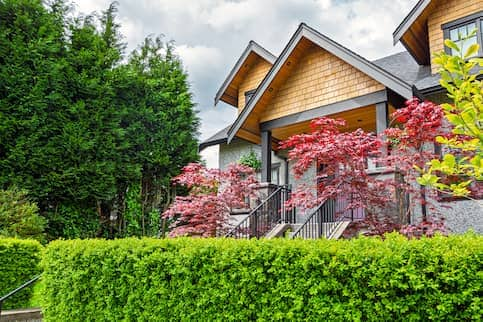
The real estate agency commission model has endured and is still very popular. The average fee charged to represent a buyer or seller in 2009 was $13,990. The traditional business model is resilient, despite the fact that many new companies emerged during the real-estate boom in 2005-2007. In the Great Recession sellers were more willing and able to pay listing agents. Many agents were also forced out of business by the downturn.
Realogy's average sale price for a home was $390 6688 in 2009.
Realogy data shows that the average home sold for $390,688 in 2009. In contrast, in 2010 the average home sold for $553,081. In both years, however, the average home sold for $553,081. The company has experienced a steady decline in commission rates in recent years. This trend was briefly reversed in the Great Recession, when consumers were more willing to pay higher commissions. However, this trend was briefly reversed by the Great Recession when consumers were willing to pay higher commission rates.
However, the number of home sales declined a bit in 2009. Comparable to 2008, 2009 saw a decrease of 4% in home sales. The median sale price dropped 5% from 2008. This drop was primarily due to more distressed sale and fewer REOs sales, which are typically more expensive to sell.

Glass House Real Estate rebates are part of the buyer's commission
Glass House Real Estate offers full-service realty brokerage services and rebates a portion of the buyer's agent fee. Their unique rebate program allows homebuyers to save on their real estate transaction fees by 2%. In addition, they offer a 50% listing agent commission discount. Glass House has given over $1,000,000 in rebates to its buyers since 2006. You can find a rebate calculator and MLS search on their website.
Rebates are a great way for buyers to reduce their transaction costs and to boost competition among real estate agents in NYC. Commission rebates could be offered in the form or a check at the close or a credit to the purchase price. Rebates are generally exempt from tax, but it is a good idea to consult a tax accountant before accepting any.
Realogy's average fee was $13,990 to represent the seller or buyer in 2009.
Realogy's fee structure is similar to that of most other brokers, with the seller paying a part of the commission to the buyer's agent. Realogy owns Coldwell Banker, Century 21 and ERA. As of January 2019, the average fee to represent the seller or buyer was $13,990. But that fee is not the only consideration when choosing an agent.
Sellers are concerned about how long it takes to sell their home. RealSure aims to eliminate this concern. Home sellers won't have to wait for their home to sell for months. Realogy-affiliated agents must sign the listing agreement. It excludes the lower-fee iBuyer options. Realogy also uses the program to generate leads for its brokerage brands.

Realogy's average commission to represent the seller is split among the listing agent, and what will go on the MLS for any agent
Realogy agents were paid an average $105,519 commission for representing one party in a transaction. That figure is projected to rise to $553,081 in 2020. The average commission for representing the seller will be $13,990 in 2020. Realogy agents can charge a fee of 2.48% to represent the seller.
This commission may vary over time based on the housing market and overall market conditions, but it does not vary in proportion to home prices. While the average commission for representing a seller is lower in a competitive market, the commission fee for each transaction is still relatively inflexible compared to home sales prices. Despite the fact, consumers have paid considerably higher rates for brokerage service in recent times.
FAQ
What are some of the disadvantages of a fixed mortgage rate?
Fixed-rate mortgages tend to have higher initial costs than adjustable rate mortgages. If you decide to sell your house before the term ends, the difference between the sale price of your home and the outstanding balance could result in a significant loss.
How much money can I get to buy my house?
This varies greatly based on several factors, such as the condition of your home and the amount of time it has been on the market. Zillow.com says that the average selling cost for a US house is $203,000 This
Can I purchase a house with no down payment?
Yes! There are many programs that can help people who don’t have a lot of money to purchase a property. These programs include government-backed mortgages (FHA), VA loans and USDA loans. More information is available on our website.
What are the benefits of a fixed-rate mortgage?
Fixed-rate mortgages lock you in to the same interest rate for the entire term of your loan. This means that you won't have to worry about rising rates. Fixed-rate loans come with lower payments as they are locked in for a specified term.
Statistics
- This seems to be a more popular trend as the U.S. Census Bureau reports the homeownership rate was around 65% last year. (fortunebuilders.com)
- It's possible to get approved for an FHA loan with a credit score as low as 580 and a down payment of 3.5% or a credit score as low as 500 and a 10% down payment.5 Specialty mortgage loans are loans that don't fit into the conventional or FHA loan categories. (investopedia.com)
- Over the past year, mortgage rates have hovered between 3.9 and 4.5 percent—a less significant increase. (fortunebuilders.com)
- Some experts hypothesize that rates will hit five percent by the second half of 2018, but there has been no official confirmation one way or the other. (fortunebuilders.com)
- 10 years ago, homeownership was nearly 70%. (fortunebuilders.com)
External Links
How To
How to Manage A Rental Property
Renting your home can be a great way to make extra money, but there's a lot to think about before you start. We'll help you understand what to look for when renting out your home.
If you're considering renting out your home, here's everything you need to know to start.
-
What should I consider first? Consider your finances before you decide whether to rent out your house. If you have outstanding debts like credit card bills or mortgage payment, you may find it difficult to pay someone else to stay in your home while that you're gone. You should also check your budget - if you don't have enough money to cover your monthly expenses (rent, utilities, insurance, etc. This might be a waste of money.
-
How much will it cost to rent my house? The cost of renting your home depends on many factors. These include factors such as location, size, condition, and season. Keep in mind that prices will vary depending upon where you live. So don't expect to find the same price everywhere. Rightmove has found that the average rent price for a London one-bedroom apartment is PS1,400 per mo. If you were to rent your entire house, this would mean that you would earn approximately PS2,800 per year. This is a good amount, but you might make significantly less if you let only a portion of your home.
-
Is it worth it? It's always risky to try something new. But if it gives you extra income, why not? Before you sign anything, though, make sure you understand exactly what you're getting yourself into. It's not enough to be able to spend more time with your loved ones. You'll need to manage maintenance costs, repair and clean up the house. You should make sure that you have thoroughly considered all aspects before you sign on!
-
Are there benefits? Now that you have an idea of the cost to rent your home, and are confident it is worth it, it is time to consider the benefits. You have many options to rent your house: you can pay off debt, invest in vacations, save for rainy days, or simply relax from the hustle and bustle of your daily life. Whatever you choose, it's likely to be better than working every day. If you plan ahead, rent could be your full-time job.
-
How do I find tenants After you have made the decision to rent your property out, you need to market it properly. Online listing sites such as Rightmove, Zoopla, and Zoopla are good options. Once potential tenants contact you, you'll need to arrange an interview. This will help to assess their suitability for your home and confirm that they are financially stable.
-
What can I do to make sure my home is protected? If you are worried about your home being empty, it is important to make sure you have adequate protection against fire, theft, and damage. You will need insurance for your home. This can be done through your landlord directly or with an agent. Your landlord will often require you to add them to your policy as an additional insured. This means that they'll pay for damages to your property while you're not there. If your landlord is not registered with UK insurers, or you are living abroad, this policy doesn't apply. In such cases, you will need to register for an international insurance company.
-
Sometimes it can feel as though you don’t have the money to spend all day looking at tenants, especially if there are no other jobs. But it's crucial that you put your best foot forward when advertising your property. Post ads online and create a professional-looking site. It is also necessary to create a complete application form and give references. While some people prefer to handle everything themselves, others hire agents who can take care of most of the legwork. Either way, you'll need to be prepared to answer questions during interviews.
-
What do I do when I find my tenant. If you have a contract in place, you must inform your tenant of any changes. You may also negotiate terms such as length of stay and deposit. While you might get paid when the tenancy is over, utilities are still a cost that must be paid.
-
How do I collect my rent? When it comes time for you to collect your rent, check to see if the tenant has paid. If your tenant has not paid, you will need to remind them. You can deduct any outstanding payments from future rents before sending them a final bill. You can always call the police to help you locate your tenant if you have difficulty getting in touch with them. They will not normally expel someone unless there has been a breach of contract. However, they can issue warrants if necessary.
-
How do I avoid problems? While renting out your home can be lucrative, it's important to keep yourself safe. Consider installing security cameras and smoke alarms. Check with your neighbors to make sure that you are allowed to leave your property open at night. Also ensure that you have sufficient insurance. Finally, you should never let strangers into your house, even if they say they're moving in next door.